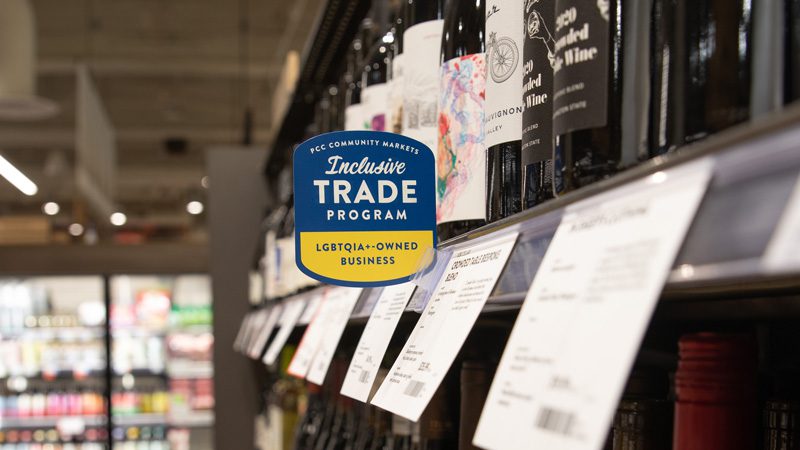Introducing the eighth cooperative principle
This article was originally published in June 2024

Co-op members around the world know about the Rochdale Principles — seven ideals governing how co-ops work, first established in 1844. Many co-ops, including PCC, now observe an eighth: Diversity, Equity and Inclusion (DEI).
The added principle was based on the concept that co-ops are stronger when everyone is involved, including people from historically and currently excluded communities. rogram is one example of putting the practice into action.
National Co-op Grocers, a Minnesota-based organization representing more than 150 food co-ops including PCC, formally added that principle last year. Spokeswoman Kelly Smith said in an email that it’s an important change.
“As many folks know, the International Cooperative Principles were written nearly 180 years ago and have only rarely been updated. Cooperatives, and humanity broadly, still have a long way to go to create a more just, inclusive and prosperous world for everyone,” she wrote.
The eighth principle “makes it clear that these ideals are and continue to be important to cooperatives and should be actively prioritized and pursued for the benefit of society.”
What are the Rochdale Principles?
The modern co-op era began with the “Rochdale Pioneers,” named after the town in England where those workers were based. As this Sound Consumer article describes, textile workers in Rochdale were paid by their employers in credit that could be used only at company-owned general stores. (“Another day older and deeper in debt,” ahem.)
Dissatisfied with the quality and prices of company goods, 28 workers banded together to form the “Rochdale Equitable Pioneers Society.” They scrimped and saved for more than a year until they could open their own small storefront with the 28 pounds they had pooled together,” Alicia Lundquist Guy wrote.
The Rochdale co-op’s entire opening stock could have fit in a wheelbarrow, wrote author David Thompson: “Six sacks of flour, one sack of oatmeal, 56 pounds of sugar, 25 pounds of butter, and two dozen candles.” What they had gathered philosophically was far more abundant: The concepts of voluntary and open membership, education, co-operation and concern for community. The details have been reworked over time, but remain “based on the values of self-help, self-responsibility, democracy, equality, equity, and solidarity,” according to the International Cooperative Alliance (ICA). (See the ICA’s official definitions of the seven principles here.)
Why do we need an eighth co-op principle?
The first cooperative principle does speak to membership being open to everyone, Smith noted — without gender, social, racial, political or religious discrimination. However, she said, “we believe it’s important to think about DEI more broadly — to recognize and fix the systemic issues that hinder inclusive cultures and prevent a more equitable and just society.”
The call for an 8th principle was led by Maurice R. Smith, the chairman of the African American Credit Union Coalition and former CEO of Local Government Federal Credit Union and Civic Federal Credit Union. It’s been adopted by the Credit Union National Association, the largest credit union trade organization (now America’s Credit Unions) and many others. NCG, in addition to providing professional development on DEI, supports DEItalks.com, which urges the ICA to add DEI as a universal eighth principle.
DEI makes sense morally and socially, the site says, but there’s a strong business case for it too.
“By ensuring a diverse staff that possess the skills and experience needed to face any scenario they’re presented with, organizations will be better positioned for success. Diversity expands the pool of capable candidates with valuable talents. Inclusion opens the door for advancements within the organization and the movement as a whole.”
Learn more about co-op principles
Join PCC in marking 2024 The Year of the Co-op.
Learn more about PCC’s practice of justice, equity, diversity and inclusion in the 2023 Co-op Purpose Report.
Read about what’s different about shopping at a food co-op.
See how Hmong flower farmers joined together to form a new Northwest co-op.
